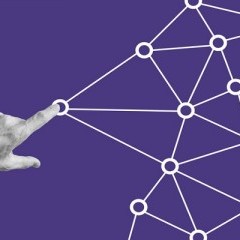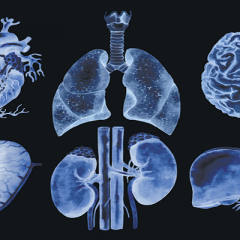The Clinical Promise and Ethical Pitfalls of Electronic Phenotyping
HealthITAnalytics As information technology (IT) methods for disease surveillance, predictive analytics, and clinical decision support become more advanced, big data mining will be crucial to ensure tools use large, high-quality datasets. Data mining can enable electronic phenotyping— a process to query electronic health records (EHRs) and clinical information systems to extract patient...
More Features
Visualizing, Interpreting, and Disposing of Healthcare Analytics Data
The success of a healthcare analytics project is predicated on how well project stakeholders navigate the data lifecycle, which consists of data generation, collection, processing, storage, management, analysis, visualization,...
Storage, Management, and Analysis in the Health Data Lifecycle
The data lifecycle drives data analytics projects across industries, and healthcare is no exception. Healthcare stakeholders need to have a firm grasp on each of the steps in the cycle — data generation, collection, processing,...
The Healthcare Data Cycle: Generation, Collection, and Processing
As data analytics become more necessary to advance population and public health, healthcare stakeholders may find themselves increasingly working on analytics projects. The outcomes of these projects depend on many factors, but healthcare...
How Can Predictive Analytics Help ACOs Boost Value-Based Care Delivery?
Accountable care organizations (ACOs) play a critical role in shifting the healthcare system toward value-based care, but population health management and care coordination initiatives require ACOs to invest in new technologies to achieve...
Breaking Down 3 Types of Healthcare Natural Language Processing
Healthcare generates massive amounts of data as patients move along their care journeys, often in the form of notes written by clinicians and stored in EHRs. These data are valuable to improve health outcomes but are often difficult to...
Investigating the Potential of Confidential Computing in Healthcare
Healthcare data analytics requires some of the highest data privacy and protection measures across the industry, making implementing privacy-preserving technologies a top priority. Doing so requires health systems to investigate, assess,...
Exploring Patient, Provider Perceptions of Healthcare AI
Artificial intelligence (AI) has been the subject of intense interest and scrutiny within the medical community in recent years, boasting significant pros and cons that continue to fuel debate in the healthcare sector. The Research and...
Explaining the Basics of Patient Risk Scores in Healthcare
As medicine advances and healthcare organizations move toward value-based care, providers and health systems are prioritizing population health and preventive care. But to prevent disease and adverse outcomes for patients, health systems...
Patient Privacy in Healthcare Analytics: The Role of Augmentation PETs
Healthcare big data analytics efforts must strike a balance between making patient data accessible to researchers and guaranteeing that it is private and protected from unauthorized individuals. To do so, stakeholders can utilize...
How Architectural Privacy-Enhancing Tools Support Health Analytics
Data analytics is critical to advancing healthcare quality and medical breakthroughs, but protecting patient data must be a priority throughout the process. Privacy-enhancing technologies (PETs) are critical tools healthcare organizations...
Using Algorithmic Privacy-Enhancing Technologies in Healthcare Analytics
Big data analytics in healthcare have the potential to advance medical research and lead to important breakthroughs, but ensuring both security and access to protected health information (PHI) can be a challenge. Healthcare data access is a...
Exploring Mayo Clinic’s AI Efforts to Enhance Organ Transplants
Organ transplants represent one of many revolutionary advancements within the field of medicine over the past century. Since the first successful human kidney transplant in 1954, the number of treatment options for once life-threatening or...
Data Analytics in Healthcare: Defining the Most Common Terms
Big data analytics play an increasingly significant role in improving care quality, patient outcomes, operational efficiency, and cost reduction for healthcare stakeholders. But navigating the healthcare data analytics landscape requires...
Breaking Down the 4 Types of Healthcare Big Data Analytics
Big data analytics has become a hot topic as healthcare systems have transitioned to EHRs and begun pursuing digital transformation. Patients generate massive amounts of data throughout their care journeys that could be used to improve...
Explaining the Basics of Blockchain Technology in Healthcare
Like artificial intelligence (AI), machine learning (ML), robotics, and virtual reality (VR), blockchain has been hyped across sectors, including healthcare. But navigating the hype and assessing the potential value of blockchain remains a...
Top Data Analytics Tools for Population Health Management
Effective population health management requires collecting, processing, and analyzing large amounts of patient data, making data analytics tools key for any population health initiative. Population health is often conceptualized based on a...
Investigating Use Cases for AI, IT Tools in Emergency Medical Services
Emergency medical services (EMS) and first response teams play an instrumental role in providing timely, life-saving healthcare. To help make emergency care more efficient and improve patient outcomes, many EMS organizations are evaluating...
Exploring the Role of Artificial Intelligence in Anesthesiology
In anesthesiology, as in all medical specialties, clinicians strive to support patient safety and improve outcomes. Some anesthesiology professionals are investigating how advanced technologies like artificial intelligence (AI) and machine...
Using AI to Support Healthcare Amid a Mental Health Provider Shortage
Healthcare provider shortages are nothing new, but recent shifts in care-seeking behaviors and rising demand for health services illustrate some of the unique challenges healthcare organizations face in addressing these shortages. A 2022...

















